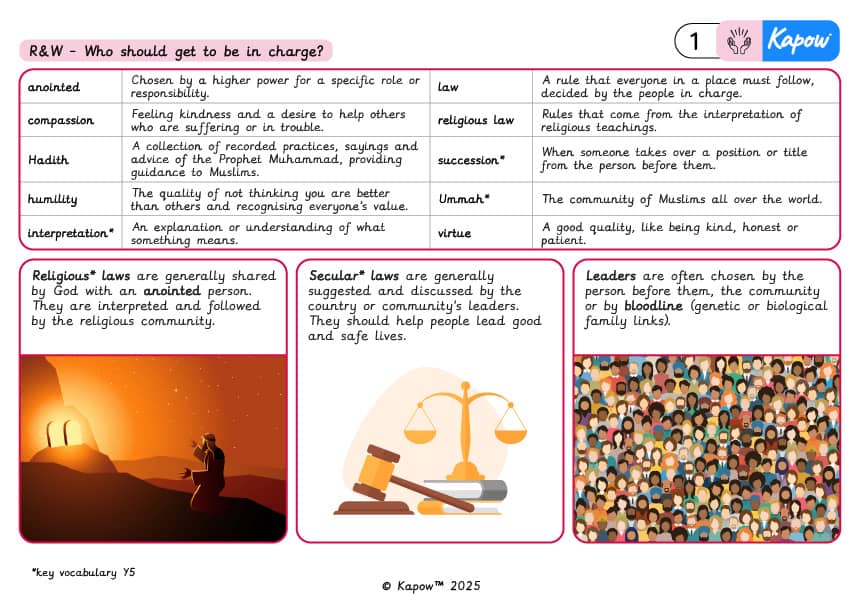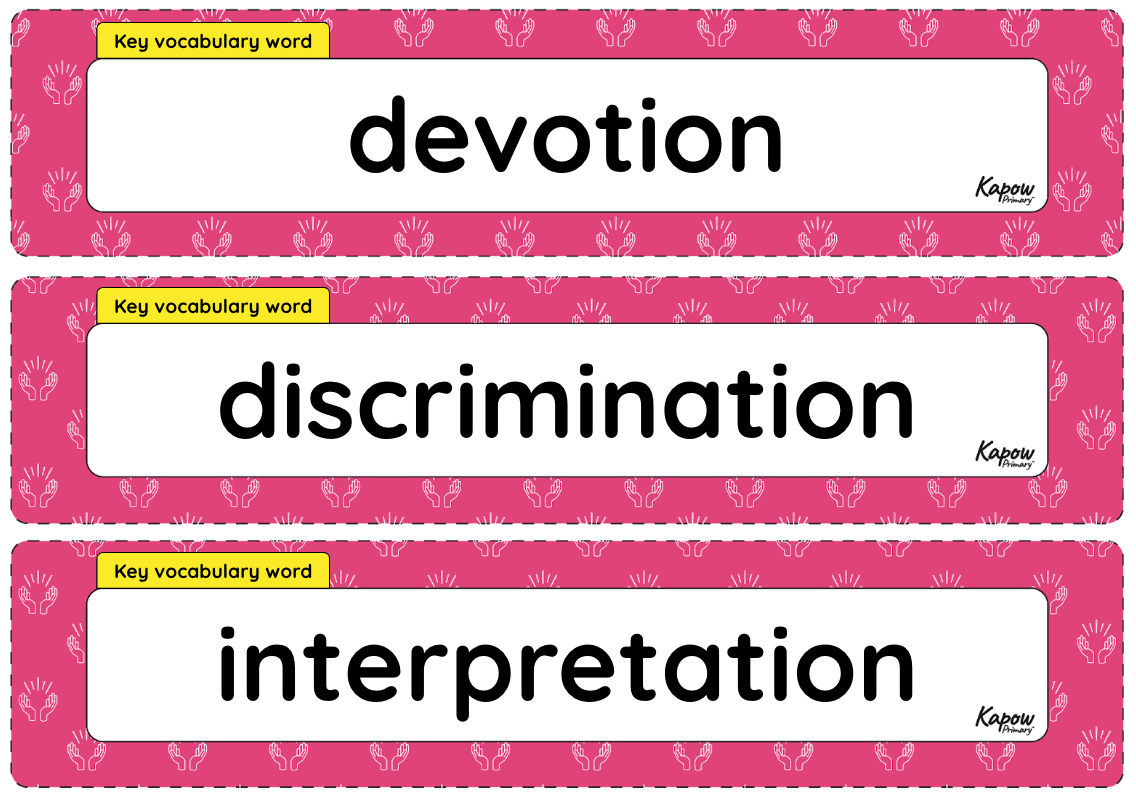Who should get to be in charge?
Exploring how leaders can be chosen for leadership characteristics.
The Curriculum and Assessment Review final report has been released. We’re reviewing the recommendations and planning for future updates. Learn more
- Subjects >
- Religion and worldviews >
- Key stage 2 >
- Year 5 >
-
Who should get to be in charge?
Unit outcomes
Pupils who are secure will be able to:
- Explain how religious laws are created, using Muslim examples.
- Describe the concept of a bloodline and its relevance to succession in the British monarchy.
- Explain how Muhammad’s successor influenced different groups of Muslims and why.
- Linking Muhammad’s practices, sayings or actions to the formation of some religious laws.
- Show an understanding of how Guru Nanak chose his successor.
- Compare and contrast the leadership qualities of Sikh Gurus, noting virtues and selection methods.
- Discuss how Sikh teachings in the Guru Granth Sahib guide followers.
During the unit, a member of one of the worldviews covered, or someone from the local community, could be invited to share how they follow religious or non-religious laws and the influence they have on their day-to-day life.
Suggested prior learning
What happens when we die? (Part 2)
Get startedPlease note
Lessons and resources within this unit have been updated, focusing on pitch, lesson length and key vocabulary. The context, skills and knowledge covered and learning progression of the unit remain the same.
Lessons
Lesson 1: How are laws created?
- To explore the creation of laws and teachings within communities.
Lesson 2: How is a leader chosen?
- To recognise why there are different ideas about succession in the Muslim worldview.
Lesson 3: Where do religious laws come from?
- To explore how some religious laws are created in the Muslim worldview.
Lesson 4: How did Guru Nanak choose a successor?
- To understand how Sikh Gurus were selected and the qualities valued in Sikh teachings.
Lesson 5: When can someone become a leader?
- To explore leadership qualities through monarchs and religious leaders.
Lesson 6: How can religious texts be leaders?
- To explain how the Guru Granth Sahib can be a guiding, living leader in the Sikh worldview.
Key skills
Key knowledge
Related content
Unit resources

Knowledge organiser – R&W Y5: Who should get to be in charge?
Aimed at pupils, two pages providing key facts and definitions from the 'Who should get to be in charge?' unit.

Vocabulary display – R&W Y5: Who should get to be in charge?
A display version of the vocabulary from the 'Who should get to be in charge?' unit.
Cross-curricular opportunities
British Values: Democracy; Tolerance of different cultures and religions; Mutual respect.
English: Reading comprehension; Spoken language.
History: Significant historical events, people and places in their own locality.
RSE: Respectful relationships.

